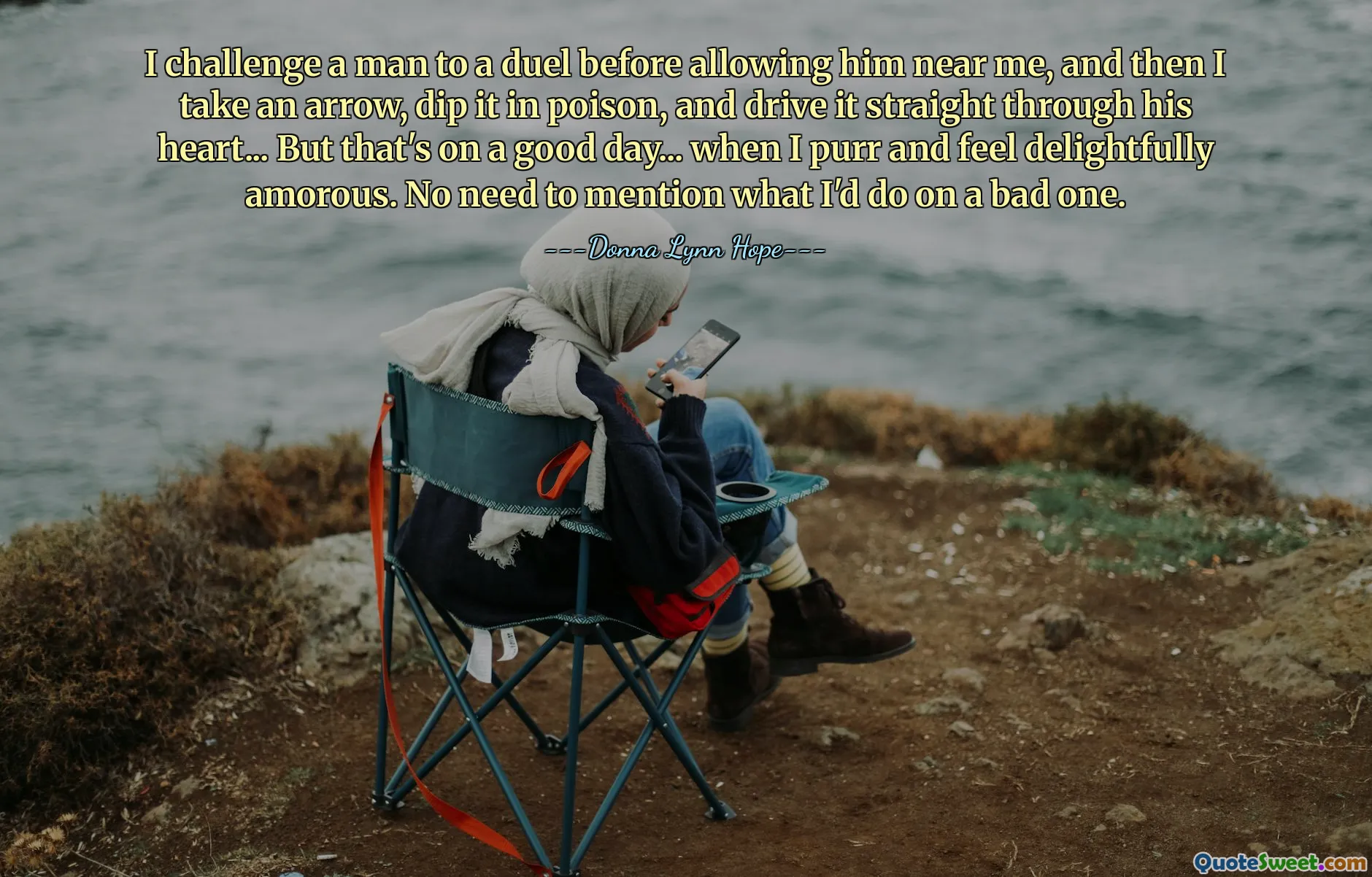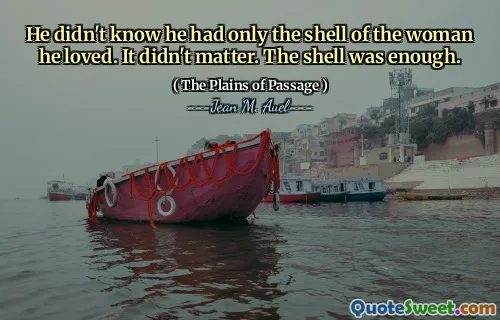
I challenge a man to a duel before allowing him near me, and then I take an arrow, dip it in poison, and drive it straight through his heart... But that's on a good day... when I purr and feel delightfully amorous. No need to mention what I'd do on a bad one.
This quote paints a vivid, metaphorical picture of vulnerability, boundaries, and the intensity of emotional defense mechanisms. The speaker uses dramatic imagery—a duel, a poisoned arrow—to emphasize the seriousness with which they guard their heart and personal space. It suggests a mix of whimsy and danger, implying that intimacy is not easily or casually given, but rather something that comes with tests and potentially deadly consequences. The phrase "on a good day when I purr and feel delightfully amorous" introduces a paradox; even in moments of affection, the speaker remains fiercely protective and somewhat perilous, blending tenderness with a latent warning. The ominous hint of "not mentioning what I'd do on a bad one" adds an edge of unpredictability or deeper pain, reflecting how emotional states dramatically affect one's interactions and openness.
In a broader psychological or relational context, this quote could resonate with those who have had to build strong defenses due to past experiences but who also crave genuine connection. It eloquently encapsulates the conflict between desire for closeness and fear of hurt, illustrating the complex nature of trust and attraction. However exaggerated the imagery may appear, it effectively conveys the delicate balance of power, attraction, and emotional risk inherent in intimate relationships.
Overall, this quote serves as a creative testament to the idea that love and vulnerability are not passive states but active, sometimes dangerous gambits where boundaries play a crucial role. It underscores the importance of respecting those boundaries and recognizing that the protective layers around a person are often there out of necessity and self-preservation, rather than mere hostility.








